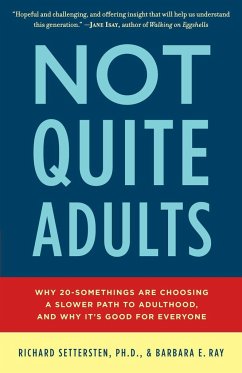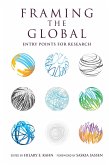Why are 20-somethings delaying adulthood? The media have flooded us with negative headlines about this generation, from their sense of entitlement to their immaturity. Drawing on almost a decade of cutting-edge research and nearly five hundred interviews with young people, Richard Settersten, Ph.D., and Barbara E. Ray shatter these stereotypes, revealing an unexpected truth: A slower path to adulthood is good for all of us. Their surprising findings include • Young adults who finish college and delay marriage and child-rearing get a much better start in life. • Few 20-somethings who live at home are mooching off their parents. More often, they are using the time at home to gain necessary credentials and save money for a more secure future. • Helicopter parents aren't so bad after all. Involved parents provide young people with advantages, including mentoring and economic support, that have become increasingly necessary to success. Not Quite Adults is a fascinating look at an often misunderstood generation. It's a must-read for parents, teachers, psychologists, sociologists, and anyone interested in today's youth culture. Visit www.notquiteadults.com for more information on this revelatory book.
Hinweis: Dieser Artikel kann nur an eine deutsche Lieferadresse ausgeliefert werden.
Hinweis: Dieser Artikel kann nur an eine deutsche Lieferadresse ausgeliefert werden.








